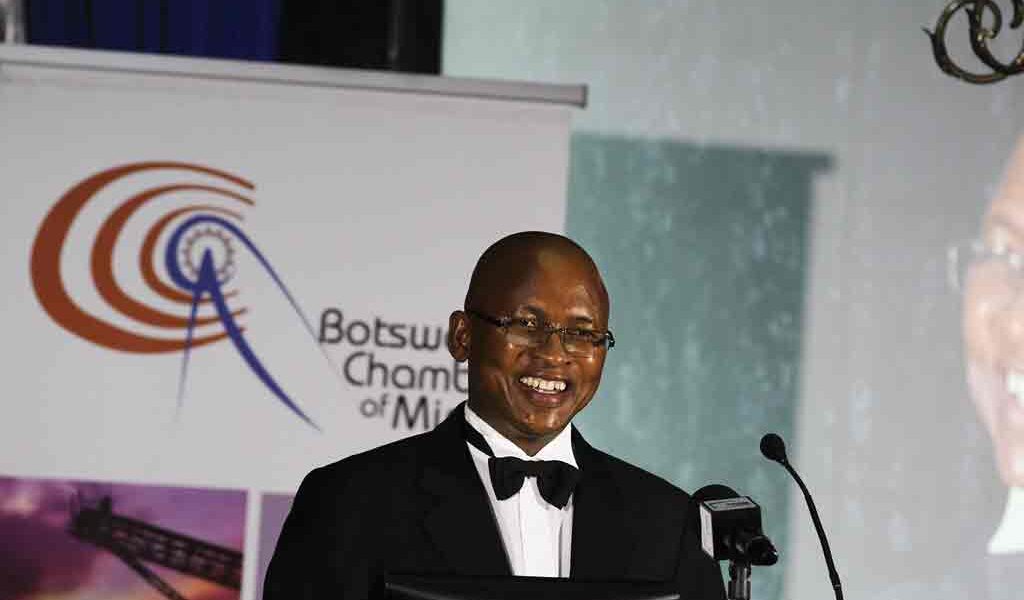- SA businessmen devalued the mine
- Govt discovers its worth billions not millions
- Mphathi reveals 3 reasons given for his dismissal
- Denies rumours of Debswana link
- Feels let down by local Board members
SONNY SERITE
The embattled Botswana Ash (PTY) Ltd (Botash) could soon be a privately owned company should the tactical plan succeed by its South African managing shareholders to wrestle out Botswana government from the public funds subsidized sodium mining company.
Managing Director Montwedi Mphathi shed some light on his humiliating dismissal last week elucidating that South African shareholders were not pleased that he did not influence the valuers to bring down the value price of the mine because they want to buy out government from the Botash shareholding.
Information gathered by this publication is that Chlor Alkali Holdings (CAH) Group, who own 50% shareholding in Botash, had offered to buy out government’s 50% shareholding at 400 million Pula. Instead of accepting the offer, government is said to have engaged consultants who established that the offer from Chlor Alkali Holdings was way too low and the consultants priced Botash at over 1.4 billion Pula. This would not be the first time a state or a quasi state institution is in the crossfire of a capture between government and well connected wealthy individuals, Air Botswana escaped capture by a whisker while Arabs who wanted BCL mine haven’t come to terms yet.
Botash has reported healthy financial forecasts from 2015, its total gross revenue amounted to P900million, in 2016 it paid shareholder dividends over P90 million while its revenue projections for the year 2018 was to reach P300 million as earnings before income tax deductions.
Speaking in an exclusive interview with The Botswana Gazette last Thursday in Gaborone, Mphathi said his dismissal came as a surprise to him. He confirmed that he was informed of the extra ordinary meeting which resolved to chuck him out just after arriving from a holiday in Dubai and that while he was alerted there would be a ‘‘special confidential meeting’’ he never thought this meeting was convened for his head.
Mphathi confirmed that he was made to wait outside the meeting room for two hours while board members deliberated inside. ‘‘Finally, after two hours, they emerged from the room and invited me to join them for tea. As we were having tea, I could tell something was amiss just from the awkward demeanour of some board members,” he revealed. After the tea break, all board members dispersed and only the board chairman, Ian Forbes, and board member Garekwe Mojaphoko stayed behind and summoned him into the meeting room where the sad news were delivered to him.
Mphathi said three reasons were given for his dismal. ‘‘Forbes said I was charged with insubordination because I had suspended one of the managers, Victoria Lekoma, against his advice,’’ he said. Mpathi, who until his abrupt dismissal has always been regarded as one of the best administrators in the mining sector, said the two additional charges were that he did not make any input in the company’s 2018 budget and also did not make any input in the evaluation of the company’s assets to determine how much the South African shareholders, Chlor Alkali Holdings (CAH) Group, could buy out government shareholding for. He says his efforts to defend himself were not entertained as he was informed that the board’s decision was final and not up for negotiations.
Mphathi explained that he came fully prepared to justify his decision to suspend Lekoma. He also said he was shocked that the board could accuse him of not taking part in the company’s budget when that is the responsibility of the Finance Manager.
Mphathi has vowed to take Botash to task over what he called ‘‘unfair dismissal’’. He said it was shocking that the board found nothing wrong with flouting Botswana’s labour laws. The board is expected to meet sometime this week to discuss Mphathi’s terminal benefits. Whatever they put on the table, Botash will pay heavily for Mphathi’s dismissal as he had served only 8 months of his renewed 5-year contract. He also expressed his disappointment at board members who represent Botswana in the Botash board saying it appears they allow South African shareholders to always have their way on what happens at Botash.
While the Minister of Minerals Sadique Kebonang is said to be abroad, government spokesperson Jeff Ramsay had not responded to questions at time of print. This publication will still afford those mentioned the right of reply at anytime should they want it on the next publication.
South Africa buys 47 % of Botash products, followed by Zambia with 24 %, Zimbabwe 16 %, Malawi seven percent, Botswana four percent and DRC two percent.
The Sua Pan Salar is the largest and lowest of three salt pans in the Makgadikgadi Pans region of northeastern Botswana. It is considered one of the largest salt flats in the world and has a surface area of approximately 4,900 km2 at an elevation of 890 m above sea level.

